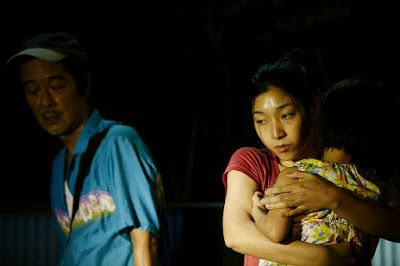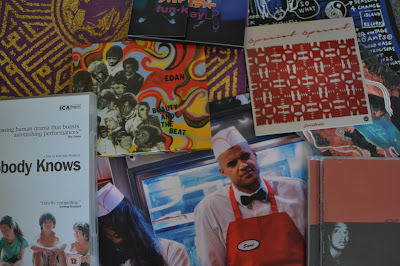Unbeatable Mind: My Autobiography (Maya
Yoshida)
Southampton defender and Premier League
benchwarmer Maya Yoshida is probably a man not many would be too bothered about
learning more. But, being a Japanese in the Premier League, he can mean big
money on the other side of the planet. A sometimes captain at Southampton (when
allowed on the pitch) and recently named full captain of the Japan national
side, Yoshida has written several books already for a kanji (hiragana, katakana
and romaji-ban)-reading audience.
Something of an Anglo-Japanese
co-production, Yoshida's autobiography (his, no one else's) focuses much on his
days at Southampton over the last few years, but starts off in the vein of a
self-help book, outlining the various factors in life that lead him to create
his "unbeatable mind" and "samurai resilience."
This can, therefore, start off somewhat
unintentionally hilarious; Yoshida channelling his inner-Alan Partridge,
endlessly quotable in its words. Here are some favourites:
"Anyway,
Pochettino had already said 'My door is always open,' in front of the team.
'I shall go and talk to him as
he's said he'd welcome that,' I thought...
'If I was to pick you, who do
you suggest I omit from the match-day squad instead?' the manager said to me
when I asked him why I wasn't picked. He parried my question with one of his
own, and my answer was 'That's not for me to decide. It's your decision boss.'
Then he answered straight back this time, 'That's right. It's my decision. And
you're not in.'
...I joked, somewhat piqued,
'Lads, his door's open but it looks like his ears aren't.'"
"It
didn't take long to realise that there was no chance of seeing the birth of
'Maya Yoshida, the regular Southampton full-back.'"
"Small
variations could be fried eggs or a pot of yoghurt."
"For
someone living in Japan, both the Netherlands and Germany are faraway foreign
countries. But once you're in Europe you can travel back and forth between
these two adjoining nations very easily."
"I
shall proudly call it the strength of an 'old bloke's face.'"
"I
said 'That'll do for now,' and got the key for the car Honda-san was using
before his transfer to CSKA Moscow. It was an Audi A3. Once inside I had a
quick look around, and found the rear seats were covered with dog hairs from
his beloved shiba inu. It was more like an Audi K9 (canine). Honda-san,
honestly!"
Towards the middle, however, once
established in the Netherlands, his move to Southampton focuses more on the
difficulties he had in struggling to find a place in the starting eleven and
realise his Premier League dream; becoming less self-help and looking more at
the difficulties for a young player coming to Europe alone from Asia and
adjusting to a new life. Southampton's successes seeing many of his teammates
get head-hunted, as well as the large number of different managers he has had
to work with and impress.
Now one of Southampton's' longest-serving
players and sometimes captain, there is perhaps some worth in this book for
Saints fans, as well as some insight into the difficulties for Asian players
coming to Europe and the Premier League (they can't all win it in their first
season like Kagawa and Okazaki). And though charming enough, perhaps
"Unbeatable Mind" entertained me for some of the wrong reasons.
Days to read:12
Days per book: 14.8
King of the Bored Frontier (K.S.
Silkwood)
In 1997 I was probably touching myself
inappropriately. No. Well, yes, but my brief former flatmate was an art student
in those days...or was he? (He writes under a pseudonym).
The second published novel as part of a
trilogy - this is the first that I have read (as I like to keep things in
order) - this is a diary-like account of a Third Year art student in London. As
the title suggests, coming post-Brit Pop, post-Damian Hurst and
post-everything, our hero is a cynical third year, tired of art, tired of
students and tired of just about anything...apart from Adidas, alcohol, sex and
eye-liner. As part of his final project, a satire is planned, though in this
bored state, is it genius or Jermaine Jenas?
The art aside, the journey along the
final year of art college is the story. With alcohol consumption placed above
actual study and practice, one can't help but replace the featured college bar
with my own memories of Newcastle University's Men's Bar circa 2004, just
without the art, the Adidas, the eye-liner and the possibility of kissing
anyone. But then, I didn't go to art college.
Knowing the author, I can see much him in
the lead (let's not call him 'hero' this time), though with an added sense of
bravado (or not), but with a wit and charm that makes you want to get the next
round in and relive the good ol' days, feeling as though you are there and have
met (and lived with) characters like those involved.
But mainly, "The King of the Bored
Frontier" did feature a quite simple line that for once actually did make
me laugh out loud (spelt LOL) on a Tube. I'll leave it up to him to guess which
one it was...
I hope I've misinterpreted things.
Days to read: 17
Days per book: 14.8
Parade (Shuichi Yoshida)
"Parade" is the ultimate in
urban flatshares in that four flatmates soon become five; all of them knowing
little of each other's lives outside of the flat, with some barely at home.
Each chapter is narrated by one of the
five, with attention given to their relationship with the flatmate who will
become the next narrator. Featured among the twenty-somethings and late teens
are: a student who works in a Mexican restaurant; the unemployed girlfriend of
a TV actor; a shop manager who illustrates and spends each night drunk; a male
prostitute; and an employee for a film production company.
The failed or temporary nature of the
relationships they all form tell the story of modern living in a capital city,
namely Tokyo, as well as their knowing little about the lives of the people
they share a bedroom, bathroom, kitchen and lounge with; or choosing to turn a
blind eye, as evidenced by the out-of-the-blue revelation coming at the book's
conclusion. Careers and homes are fallen into, with lives occurring while other
plans are in the initial stages.
The second best book written by a Yoshida
I've read this past couple of months, "Parade" is a nice, steady read
which shows a little of the life that everyone living in a capital city has
probably experienced.
Days to read: 13
Days per book: 14.8
A Personal Matter (Kenzaburo Oe)
Kenzaburo Oe's "A Personal
Matter" is exactly that: Coming a year after the birth of his autistic son
(who grew to become composer Hikari Oe), it tells the somewhat shocking
reaction of teacher "Bird" after his son is born with a deformity in
his brain and the days following the birth.
The mother kept in the dark, Bird is left
to be the sole decision maker as to how the child is managed. Initially, he
follows suggestions to replace milk with sugar water; before rejecting surgery
to try and save the baby, opting instead to take the child to a less reputable
abortionist. All this is done alongside getting blind drunk and vomiting in
front of one of his classes and having repeated sexual liaisons with a former
college girlfriend. And this is just the first couple of days of being a
father.
Bird's immediate reaction is to runaway.
His dreams of Africa and a more active sex life immediately come to the fore as
he tries to escape the reality of what is happening and take responsibility. This
is probably very much a male reaction when placed in a position of having to
make a decision on the life of their newborn, and probably reflects more than
some of the thoughts that went through Oe's mind on his son's birth.
This is a tragicomedy: the initial
reaction of the doctors involved one almost of delight at having such a rare
case happen on their patch; as well as Bird's father-in-law offering him what
he knows is a poisonous bottle of whiskey given his past, resulting in the
aforementioned lesson plan. Though Oe still manages to weave in some social
comment as to post-war Japanese society.
Bird's reactions are an exaggeration, but
"A Personal Matter" is perhaps more refreshing than shocking for its
honesty, humour and reflection of its age.
Days to read: 11
Days per book: 14.8

























